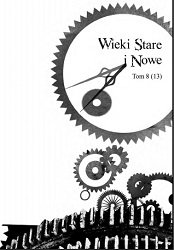Działania dyplomacji brandenburskiej w Polsce podczas elekcji 1674 roku
The activities of the Brandenburg diplomacy during the 1674 election in Poland
Author(s): Andrzej KamieńskiSubject(s): Diplomatic history, 17th Century
Published by: Wydawnictwo Uniwersytetu Śląskiego
Keywords: Poland and Prussia; Friedrich Wilhelm; Hohenzollern; Prussian diplomacy
Summary/Abstract: Frederick William, Elector of Brandenburg, took advantage of the political crises in Poland to bargain his way to various kinds of profit. In 1648 he received for himself and his successors an exemption from the personal paying of tribute from the Prussian fief. Whereas in 1668 he took advantage of the chaos associated with the abdication of Jan Kazimierz to seize in a military manner the Drahim starosty, which since the Deluge was under dispute between Brandenburg-Prussian and the Polish Crown. When he gained independence in the Prussian Duchy in 1657 he also engaged himself in the political struggle associated with the appointment to the Polish throne. The Hohenzollern did not desire to see on the Polish throne neither a French prince nor a Habsburg protégé. His dream appointee was a weak ruler would have to constantly take into account the will and the demands of the Brandenburg electors. It was for these reasons that he supported the candidacy of Philip William, the Neuburg prince, during the interregnum of 1668/1669. After King Michał Korybut Wiśniowiecki’s death in 1673 the goals of the Brandenburg diplomacy reached a new level. For the two Morsztynowie — the great crown undertreasurer Jan Andrzej and the Lithuanian underequery Szczęsny — put forward a plan of appointing the eldest son of the Brandenburg elector, Karl Emil, to the Polish throne. He gained the support of the powerful senators, including the hierarchs of the Catholic Church — the crown deputy chancellor of the treasury, the bishop of Chełm, Andrzej Olszowski, and the bishop of Cracow, Andrzej Trzebicki. The perspective of the advancement of the house of Hohenzollern was so attractive that Frederick William was prompt to cede various lands and to grant to the Polish Republic considerable military support against Turkey. He gave up his dream of the royal crown being granted to his son only when the Polish party made his appointment dependent on the Hohenzollern’s acceptance of Catholicism. In this situation Frederick William decided on 20 March 1674 to support the candidacy of the Neuburg prince, John William. On the basis of a treaty contracted on 1 May 1674 he was supposed to receive from the Neuburg prince, after his possible ascension to the Polish throne, an extension of the succession in the Duchy of Prussia to include the side branch of the Hohenzollern family and the assurance of the rights and liberties for Evangelicals in Poland. The favourable turn of the election for Brandendburg-Prussia was to be conditioned by the intensifying rivalry of the leaders of the French and Austrian factions. However, the cunningly conducted diplomatic game of the electoral legate, Johann von Hoverbeck, was futile. The emperor’s ambassador manifested a complete lack of judgment and he did not support a compromise Neuburg candidacy by supporting Charles of Lorraine until the very end. Jan Sobieski’s election victory, the leader of the French faction, frustrated elector F. William’s...
Journal: Wieki Stare i Nowe
- Issue Year: 13/2015
- Issue No: 8
- Page Range: 28-45
- Page Count: 18
- Language: Polish

